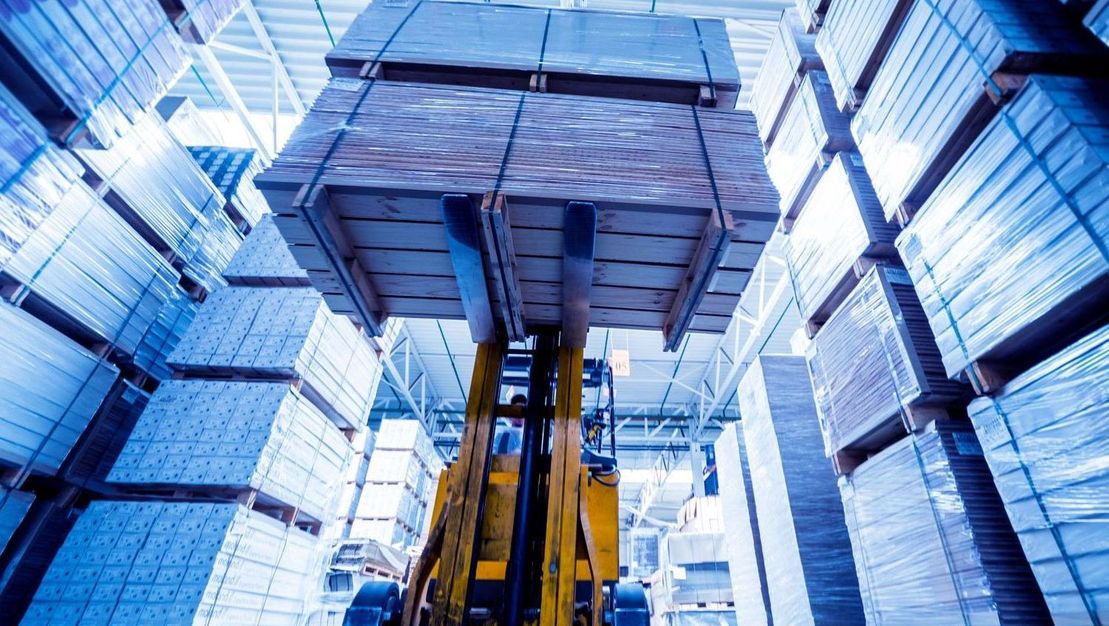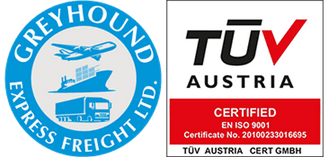
10/05/2023 0 Comments
Bonded Warehouses: Your Questions Answered
Greyhound Express Freight LTD. is one of Ireland's most established independent freight forwarders. Our warehouse is located in Cork airport. We have access to a bonded warehouse. When we discuss bonded warehouses, even experienced importing companies will have questions. To make this information more accessible, we have compiled some of the most common questions below.
What is a bonded warehouse?
A bonded warehouse is a secure facility or area where goods are stored under the supervision of customs authorities or other government agencies until they are released for import or export. These warehouses are designed to store goods subject to government regulations, such as taxes, duties, or other fees until the required paperwork is completed and the goods are released.
Businesses often use bonded warehouses that import goods into a country but do not want to pay the required taxes and fees upfront. By storing their goods in a bonded warehouse, they can delay payment of these fees until they are released for sale or distribution.
In addition to providing storage for goods, bonded warehouses may also offer value-added services such as inspection, sorting, and repackaging. They are typically located near ports of entry or other transportation hubs to facilitate the movement of goods.
What is not allowed in a bonded warehouse?
In Ireland, certain goods cannot be stored in bonded warehouses. These include:
Perishable goods such as fresh fruits, vegetables, and meats.
Explosives, firearms, and ammunition.
Radioactive materials and hazardous chemicals.
Tobacco products, including cigarettes and cigars.
Live animals and plants.
Counterfeit goods and goods that infringe on intellectual property rights.
Goods that are prohibited or restricted under Irish law, such as narcotics and certain types of medications.
In addition, bonded warehouses are subject to regulations and inspections by the Irish Revenue Commissioners and other government agencies to ensure compliance with customs and excise laws.
In Ireland, how long can goods stay in a bonded warehouse?
The time that goods can stay in a bonded warehouse is subject to specific regulations and may vary depending on the goods being stored. Generally, goods can be stored in a bonded warehouse for up to 90 days without additional fees or taxes.
However, if the goods need to be stored longer, applying for an extension of the storage period may be possible. The extension is granted on a case-by-case basis and is subject to approval by the Irish Revenue Commissioners.
It's also worth noting that if goods are left in a bonded warehouse for too long, they may be subject to seizure and forfeiture by the Irish government. Therefore, it's essential for businesses to carefully manage the storage of their goods in bonded warehouses and ensure that they comply with all relevant regulations and requirements.
What is the difference between a free zone and bonded warehouse?
In Ireland, a free zone and a bonded warehouse are two different customs-controlled areas used to store goods. The main difference between the two is their level of control and flexibility.
A bonded warehouse is a secure facility where goods are stored under the supervision of customs authorities until they are released for import or export. The goods are subject to government regulations, such as taxes, duties, or other fees, until the required paperwork is completed and the goods are released. The primary purpose of a bonded warehouse is to defer payment of duties and taxes until the goods are ready to be released for sale or distribution.
On the other hand, a free zone (also known as a free trade zone or freeport) is a designated area within a country where goods can be imported, exported, and stored without being subject to certain taxes and duties. The goods in a free zone are considered outside the country's customs territory and subject to different regulations and controls. Businesses operating in a free zone can benefit from streamlined customs procedures, reduced administrative burdens, and lower costs.
In summary, a bonded warehouse is a customs-controlled area where goods are stored until they are released for import or export, while a free zone is a designated area within a country where goods can be imported, exported, and stored without being subject to certain taxes and duties.
Do you still have questions regarding bonded warehouses? Then please get in touch with our offices today.

Comments
Leave a comment